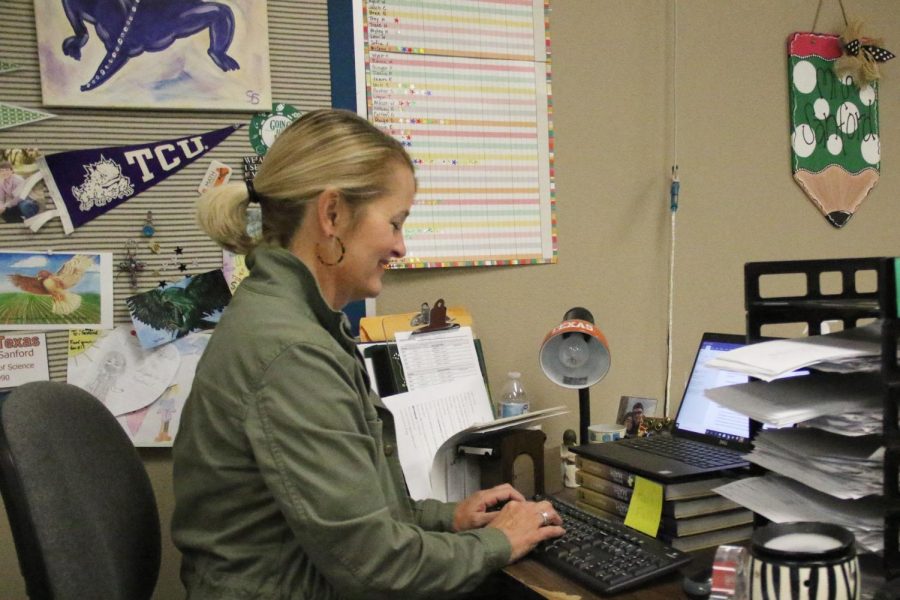Online Learning: Teachers’ Perspective
Virtual classrooms have made 2020 a year unlike any other
High school algebra teacher Shelly Sanford has had to put in extra work this school year to manage teaching students in-person as well as online.
October 24, 2020
Teachers from kindergarten to high school have had to adjust quite a bit this year as some students have had to learn online due to the COVID-19 pandemic.
Teachers have had to establish a daily routine using programs like Google Classroom and Zoom with online students, and it has not always been easy.
“It’s very time consuming,” Algebra teacher Shelly Sanford said. “I find myself trying to focus on my in-class learners, and then I’m having to spend more of my off-time on my online learners when I would normally be preparing for in-class.”
Getting used to different teaching methods is trying at times for some teachers.
“When I teach through Zoom, I’m having to focus on my kids, but also on the computer,” Sanford said. “The fact that I’m being recorded and me having to be aware of that is a little scary.”
Shifting back and forth from in-person to online has also had personal effects on teachers.
“One big thing I noticed was when a student didn’t understand something, my phone was bombarded with text messages,” eighth grade English teacher Rita Medders said. “I hated the fact that I couldn’t go over to a student individually and explain the concept of the lesson in different terms.”
Many teachers said adjusting social interaction when communicating with their students, as well as the interaction between students, has been a huge hurdle.
“The in-person kids who are sitting in class are very engaged in discussion and get to talk to each other,” fifth grade reading teacher Darla Alexander said. “The online kids are in their room by themselves, so they don’t get any social interaction.”
In order to be fair to student GPAs, teaching high school online brings a grading challenge. Also, building learning foundations for younger kids is made more difficult online.
“When you get into the early elementary grades, it’s totally different,” Alexander said. “Those teachers are teaching phonics, reading, and writing which is essential to the rest of their education.”

